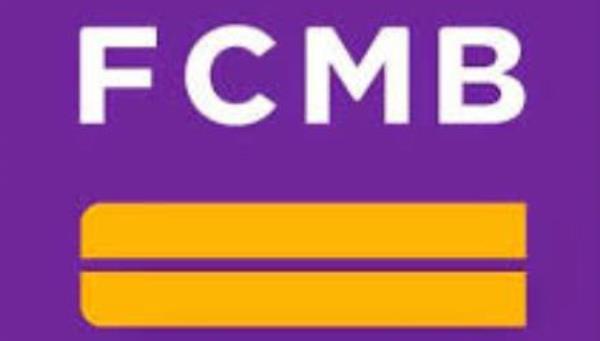E-Financial
Collaboration and Investment Key to Strengthening Africa’s Digital Payments Cybersecurity

By Omotayo Ogunlade, Chief Technology Officer at Onafriq
As the digital payments landscape in Africa expands, the need for robust cybersecurity measures becomes increasingly urgent. Trust and security are foundational to financial services, and as cybercriminals continue to become more aggressive and sophisticated, addressing any vulnerabilities is key to safeguarding the integrity of Africa’s digital financial ecosystem. In fact, Africa experienced the highest average number of cyberattacks per week per organisation in 2023 with a 23% increase compared to the previous year.

Omotayo Ogunlade, Chief Technology Officer at Onafriq
Africa’s digital financial ecosystem is still maturing, and as digital payments become more integrated across countries, regions, and more interoperable across payment platforms, this increasingly complex environment can introduce new cybersecurity vulnerabilities.
And, as in an interconnected landscape a single weak link can jeopardise the entire network, it is critical that the continent’s financial institutions, governments and decision-makers come together to collectively work towards establishing and maintaining baseline security standards across the industry. This requires building meaningful partnerships with relevant stakeholders, substantial investment and greater harmonisation of regulations and policies across the continent.
The imperative for investment and standardised regulations
Several challenges hinder the attainment of robust cybersecurity in Africa. One of the primary issues is the lag in regulatory frameworks, while a lack of significant investment in security would lead to vulnerabilities within the continent’s financial sector being exploited.
Fortunately, investment in cybersecurity has seen a notable increase over the past five years, reflecting a growing recognition of its importance. The rise of artificial intelligence (AI) and sophisticated cyber threats has driven firms to allocate more resources towards cybersecurity. And digital payment networks like Onafriq have strengthened their security posture by investing in intelligent tools that predict and proactively address potential threats.
Despite these advancements, there remains a disparity in investment levels across the continent. Ensuring that all financial institutions can meet necessary security standards requires coordinated efforts and substantial capital. This includes investing in state-of-the-art technology and continuous monitoring systems to detect and prevent malicious activities.
Additionally, regulators play a crucial role in setting and enforcing security standards. And yet the pace of regulatory development often falls behind the speed of innovation in the fintech space. Harmonising regulations across different African countries is essential to create a consistent and secure environment for digital payments by adopting best practices and global standards. This is necessary to avoid fragmentation of the digital payments landscape while effective enforcement of these standards is vital to maintaining a secure financial ecosystem.
A need for cybersecurity skills and a security first culture
A truly secure payments environment requires buy-in from every part of the ecosystem’s value chain, including the end user. Not only must financial institutions adopt a security-first approach, embedding robust security measures into every aspect of their operations, but educating users about security practices is just as crucial.
As digital payments become more prevalent, financial institutions must design products with built-in security features and continuously educate users on safe practices. This includes secure PIN usage, recognizing phishing attempts, and safeguarding personal information.
For example, Onafriq exemplifies this approach by ensuring that security is a priority from the design stage. By securing networks, protecting sensitive data, and conducting regular third-party audits, we have been able to maintain a strong security record. This proactive stance is essential for preventing breaches and ensuring customer trust.
More than this, there is a growing need to build the cybersecurity capacity needed to sustain the digital payments landscape. Africa faces a shortage of skilled cybersecurity professionals, which hampers the ability to address emerging threats effectively. In fact, a cybersecurity assessment conducted by the African Union Commission and the United Nations Development Programme found that African countries had a cybersecurity competence of 0.21 out of 1 with more than 70% of African nations requiring additional cybersecurity infrastructure.
Financial institutions and governments must invest in training programs, internships, and continuous education to develop a skilled workforce capable of managing cybersecurity challenges. But, retaining talent within Africa also remains a significant issue. Many trained professionals seek opportunities abroad, exacerbating the skills gap. Addressing this requires creating conducive environments that offer competitive opportunities and career growth within the continent.
Cybersecurity is a cornerstone of Africa’s digital payments landscape. To achieve a secure and resilient financial sector, Africa must invest in robust cybersecurity infrastructure, foster regulatory harmonisation, and prioritise collaborative efforts among financial institutions. By addressing these challenges, Africa can build a secure digital payments ecosystem that supports economic growth and instils trust among users.
E-Financial
FCMB Capital Markets Leads ₦11.85bn GLNG Bond for LNG Plant Expansion

FCMB Capital Markets Ltd. successfully led the issuance of GLNG Funding SPV Plc’s ₦11.85 billion 10-Year Series 2 Senior Guaranteed Fixed Rate Infrastructure Bond, which closed in February. This milestone underscores investor confidence in Nigeria’s clean energy transition.

The bond, issued by GLNG Funding SPV Plc and sponsored by Green Liquified Natural Gas (GLNG) as part of its capital-raising plans, is a key step in financing the construction of a mini-LNG plant with a liquefaction capacity of 200,000 standard cubic meters of gas per day.
The facility will help bridge Nigeria’s power supply gap and offer industries a cleaner, cost-effective alternative to diesel.
The issuance was backed by InfraCredit, an AAA-rated infrastructure credit guarantee firm, and is expected to generate over 500 direct and 2,000 indirect jobs, supporting Nigeria’s sustainable economic growth.
“FCMB Capital Markets remains committed to financing projects that drive clean energy adoption and long-term economic impact,” said Ikechukwu Omeruah, Managing Director, FCMB Capital Markets Limited.
“We appreciate the trust placed in us by GLNG and the invaluable role played by InfraCredit and investors in enabling the successful conclusion of this transaction.”
As gas adoption accelerates in Nigeria, a 2022 Clarke Energy report estimates that manufacturers could save up to 30% by switching to gas from the grid and as much as 80% compared to diesel.
FCMB Capital Markets, a part of FCMB Group, has been instrumental in raising over ₦3 trillion in debt and equity capital for leading corporate organizations in Nigeria over the past five years, reinforcing its position as a key player in the country’s capital markets.
E-Financial
How Nigerian Banks Earned N14.26 Trillion in Interest Income in 2024

Nine leading Nigerian banks collectively generated N14.26 trillion in interest income in 2024, reflecting a 119.55% increase from N6.49 trillion in 2023.

This surge is attributed to the Central Bank of Nigeria’s Monetary Policy Committee raising benchmark interest rates to combat inflation, which reached 34.80% by the end of the year.
Among the banks, Zenith Bank recorded the highest actual income increase, while First Holdco led in percentage growth. Access Holdings, UBA, GTCO, Stanbic IBTC, FCMB Group, Fidelity Bank, and Wema Bank also reported significant gains.
However, a portion of this income was derived from non-performing loans, raising concerns about the sustainability of these earnings.
In contrast, the manufacturing sector faced operational costs of N2.5 trillion, with high interest and energy expenses straining growth. Industry leaders have called for a halt to further rate hikes, warning of potential risks to the real sector’s recovery.
This financial dynamic underscores the contrasting fortunes of Nigeria’s banking and manufacturing sectors. What are your thoughts on these developments?
E-Financial
CBN, NGX Group Defend Economic Reforms at Nasdaq

In a bid to woo global capital and enhance investor’s confidence, Nigeria’s top financial leaders presented a unified front at a strategic investment forum hosted at the Nasdaq MarketSite in New York.

The event was organised by the Central Bank of Nigeria (CBN) in collaboration with Nigerian Exchange Group (NGX Group), JPMorgan, and the African Private Capital Association (AVCA).
The exclusive gathering brought together leaders from the Nigerian diaspora, global investment institutions, and corporate executives for insightful dialogue on the country’s evolving financial landscape and its readiness to attract global capital for sustainable growth.
Governor of the CBN, Olayemi Cardoso in a fireside chat with Nobel Prize-winning economist Dr. James Robinson, outlined Nigeria’s monetary policy direction, growth prospects, and efforts to deepen its financial markets.
He reaffirmed the CBN’s commitment to disciplined policy management, market-friendly reforms, and enhanced transparency to foster a stable, investor-friendly environment. Cardoso also stressed the importance of strong collaboration between regulators like the CBN and market operators such as NGX Group, describing it as critical to building a resilient financial system and mobilising long-term investments.
Temi Popoola, Group Managing Director/CEO of NGX Group, moderated an engaging discussion on how Nigeria’s reforms are repositioning the country as an increasingly attractive destination for global capital.
“Today’s dialogue marks a pivotal step in reshaping global perceptions of Nigeria’s investment story,” said Popoola. “The candid engagement between policymakers, market operators, and investors reflects the real progress Nigeria is making. NGX Group remains committed to supporting reforms that strengthen market structures, drive innovation, and accelerate economic growth.”
While investors welcomed Nigeria’s reform agenda, they emphasized that sustained confidence will require consistent FX policies, lower transaction costs, reduced regulatory friction, clearer direction on non-oil revenue reforms, an improved ease of doing business, and continued transparency in monetary and fiscal communication.
The forum ended on an optimistic note, with participants expressing strong confidence in Nigeria’s economic prospects and its potential for deeper integration into global financial markets, provided reform momentum continues.

 Telecom3 days ago
Telecom3 days agoMTN Nigeria Takes Broadband Services to the Next Level with FibreX Launch

 News3 days ago
News3 days agoSERAP Files Lawsuit Against NBC Over Ban on Eedris Abdulkareem’s Protest Song Tell Your Papa

 Telecom2 days ago
Telecom2 days agoDigital Transformation Remains Africa’s Gateway to Economic Advancement – Adumike

 Telecom2 days ago
Telecom2 days agoPAFON 2.0: Experts Discuss Pathways to Boost Financial Inclusion in Nigeria

 General News2 days ago
General News2 days agoEFCC Clarifies SCUML Certificate Misuse amid CBEX Ponzi Scheme Scandal

 E-Financial2 days ago
E-Financial2 days agoCBN, NGX Group Defend Economic Reforms at Nasdaq

 E-Financial3 days ago
E-Financial3 days agoFCMB Group Redefines Corporate Storytelling with The Power Of The Group TVC

 General News2 days ago
General News2 days agoFlashChange Partners Ruth Foundation to Empower Vulnerable Children in Alimosho with Skill Acquisition




























